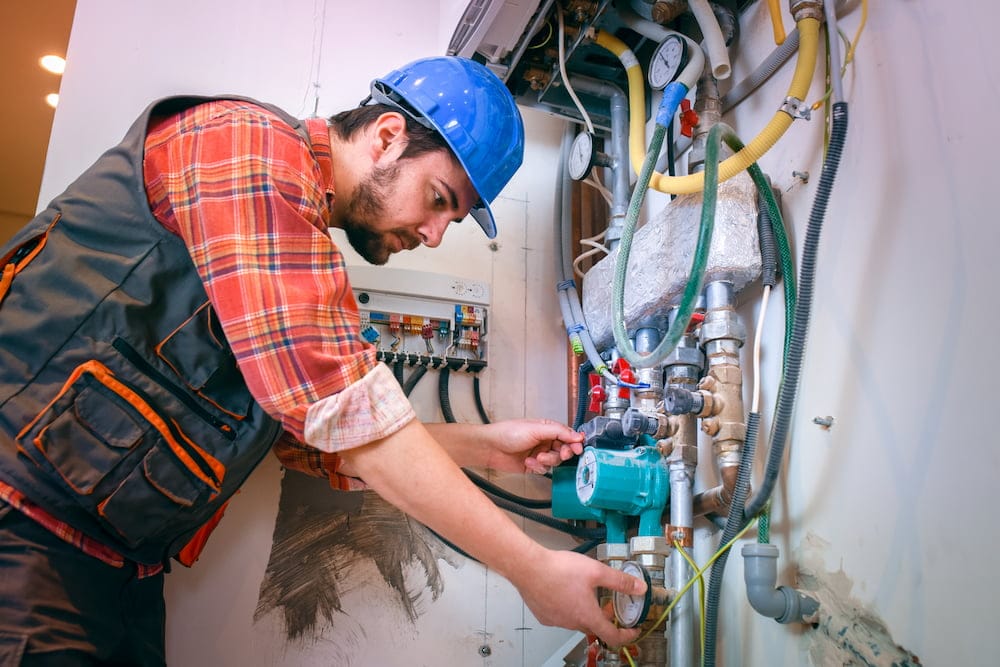Image Source: Google
Gas fitting is a crucial aspect of your home's infrastructure that should never be taken lightly. Whether it's for installing a new gas appliance, maintaining an existing system, or detecting a potential gas leak, hiring a qualified gas fitter is essential to ensure the safety of your household. Ignoring signs that indicate you need a gas fitter can lead to serious consequences, including gas leaks, explosions, and carbon monoxide poisoning. In this article, we will discuss five signs that you need to hire a gas fitter to protect your home and loved ones.
1. Gas Smell
One of the most obvious signs that you need a gas fitter is the smell of gas in your home. Natural gas is naturally odorless, but gas companies add a distinctive rotten egg smell to it to make it easier to detect leaks. If you notice this smell, do not ignore it under any circumstances.
Signs of a gas leak include:
- Rotten egg smell
- Hissing or whistling sounds near gas lines
- Dying vegetation near gas lines
- Physical symptoms like dizziness, nausea, or headaches
2. Gas Appliances Not Functioning Properly
If your gas appliances are not working as efficiently as they used to, it could be a sign that you need a gas fitter to inspect and repair them. Malfunctioning gas appliances can be a safety hazard, as they may leak gas or produce carbon monoxide, a colorless and odorless gas that can be deadly if inhaled in high concentrations.
Signs that your gas appliances need attention:
- Yellow or flickering flames on gas stoves or water heaters
- Soot or scorched marks on or around appliances
- Increase in gas bills without a corresponding increase in usage
- Appliances taking longer to heat up or not heating up at all
3. Carbon Monoxide Detector Alarms
Carbon monoxide is a byproduct of incomplete combustion of carbon-containing fuels like natural gas. Breathing in carbon monoxide can lead to symptoms like headaches, dizziness, nausea, and even death in extreme cases. To protect your household from carbon monoxide poisoning, it is essential to have carbon monoxide detectors installed in your home.
Signs that your carbon monoxide detector is alarming:
- Continuous beeping or alarm sounding
- Detector showing a high level of carbon monoxide
- Multiple detectors alarming at the same time
- Presence of physical symptoms like dizziness or nausea
4. Visible Damage to Gas Lines or Appliances
Visible damage to gas lines, connectors, or appliances is a clear indication that you need a gas fitter to assess and repair the issue. Cracked pipes, loose fittings, or rusty appliances can all pose a significant safety risk if not addressed promptly.
Signs of visible damage that require immediate attention:
- Cracks or punctures in gas pipes
- Corrosion or rust on gas connectors
- Leaking gas around appliances or connectors
- Dents or damage to gas appliances
5. Unexplained Health Symptoms
If you or your family members are experiencing unexplained health symptoms like headaches, dizziness, nausea, or fatigue, it could be due to a gas leak or carbon monoxide exposure in your home. These symptoms should never be ignored, as they can be early signs of a serious safety hazard.
Physical symptoms that may indicate a gas-related issue:
- Headaches
- Dizziness
- Nausea or vomiting
- Fatigue or weakness
Remember, the safety of your household should always be a top priority. If you notice any of the signs mentioned above, do not hesitate to contact a qualified gas fitter to inspect your gas system and address any issues promptly. Ignoring these signs can put your safety at risk and lead to potentially dangerous situations.
